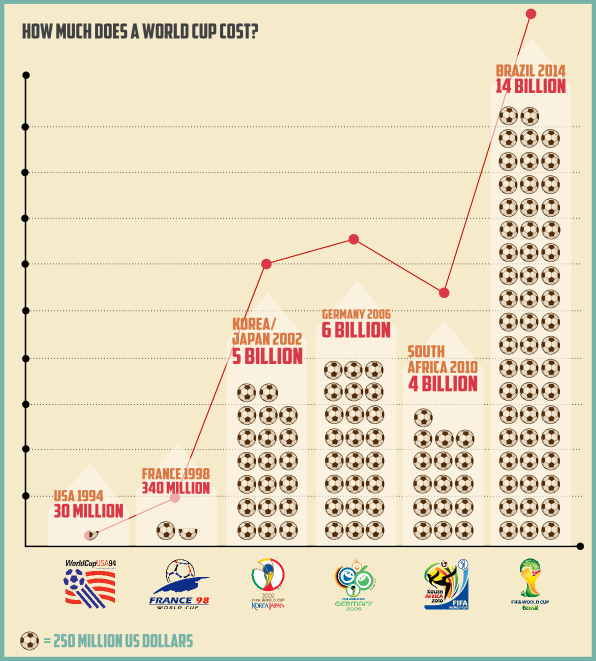

Tickets to attend the games cost from 60 to 1980 réals for Brazilians (20 to 660 €), when the average salary is 793 réals (264 €).
The total investment the country had planned to put into the event’s organization was of 9 billion euros. The stadiums for the 2014 World Cup in Brazil are as much as three times more expensive than those of Germany in 2006. The World Cup in Fortaleza will cost 9.46 billion reals (around 3 billion euros) in total. That represent 2.5 times the 2010 city budget and almost the total expenses of the state of Céara in 2009.
Montréal 1976 is the most famous financial scandal of major sport events. The Olympic stadium costed 1.5 billion Canadian dollars to the tax payers in Québec. It took them 30 years to pay the debt.
In 1992, Barcelona was left with a bill that reached 800 million euros and Sydney broke all records in 2000, with a debt of 1.5 billion euros.
The South African tax-payers are still bearing the costs of a 2.1 billion euros deficit from the 2010 World Cup, despite a revenue of more than 2.2 billion euros, a growth of more than 20% compared to 2006 (1.8 billion euros), according to financial reports published by FIFA.